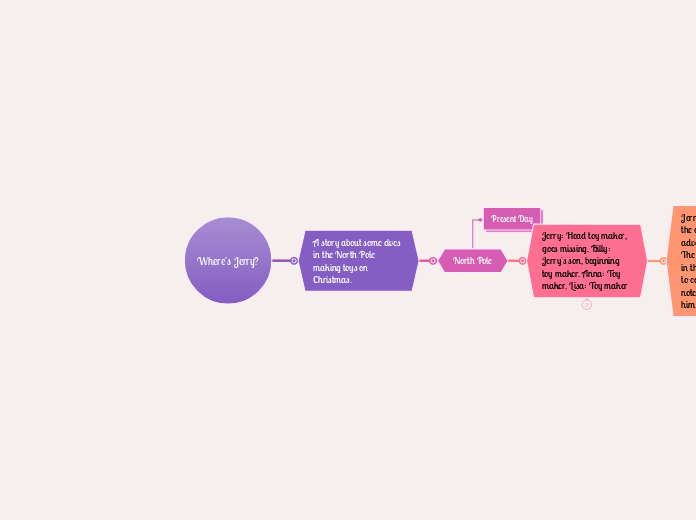作者:charlotte bowles 1 年以前
111
Where's Jerry?
In the North Pole, a team of elves is hard at work making toys for Christmas. The head elf, Jerry, unexpectedly goes missing, prompting the other elves to embark on a mission to find him.

作者:charlotte bowles 1 年以前
111

更多类似内容
Start your book report by typing in the Title and Author of the book you are presenting!
Finally, use this topic to write down your personal opinion of the book!
Keep track of the most important points in the story using the topics above.
You can use the notes to give a short summary of these events.
The resolution of the story involves tying up the loose ends of the climax and falling action.
In the resolution, the writer continues their thoughts on the story’s themes, and gives the reader something to think about after the last word is read.
The author examines what happens after the climax in the falling action.
The falling action must move the story toward some sort of resolution and begin tying up loose ends from the primary conflict, while also exploring bigger ideas and themes.
The struggle reaches its height in the story's climax, and we find out what happens to the key characters.
Consider the climax as the 'turning' point in the narrative, when the main struggle is addressed decisively.
The conflict of the plot is explored in the rising action. In this section of the story, things frequently 'become worse': a bad choice is made, the antagonist causes the protagonist harm, additional characters complicate the storyline further, etc.
The reader frequently learns important details of the past, and usually finds a deeper knowledge of the characters' motivations, the setting, and the ideas being addressed as the conflict develops.
The exposition generally introduces the key fictional components, such as the plot, characters, and writing style.
Building the environment in which the conflict of the story takes place is the focus of the exposition.
The characters in a book are what drives the plot forward.
It is important to note the significance of a character and their action to the overall story.
Use the topics below to write more information about the characters in the book!
Use the notes to write more details about the characterisation!
A book can span galaxies or single rooms. It can traverse through the past, present, and future, or can take place in a single day.
Type in the time and place of the action above.
Use the notes to write down the time references you find!
To understand the work, we must understand its origin. Type in the details of the book you are studying.
In this category, you can also include things like: the recommended audience for the book, biographic details about the author, or bibliographic details about the book.